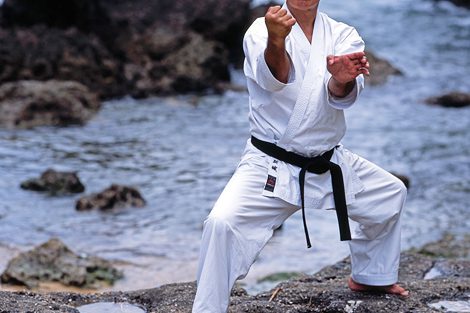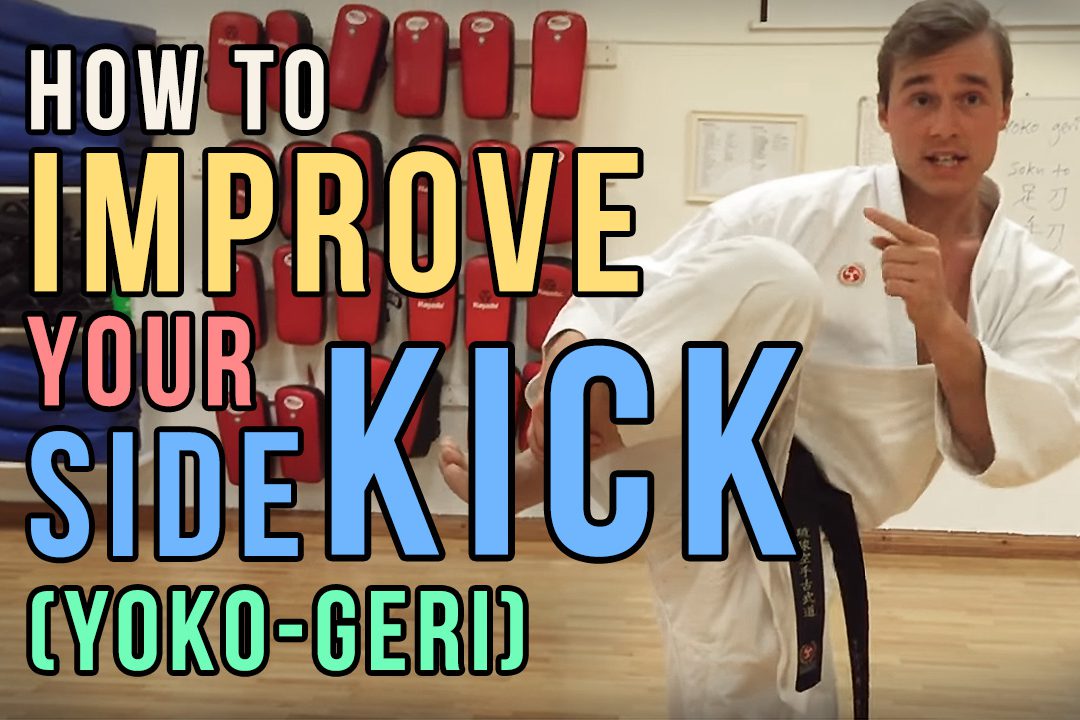“Psst… Jesse-san, don’t go to that sensei, he is crazy. He used to know very many kata and was really good, but he threw it all away and now only practises weird ‘ki’ exercises by himself. He is a little strange”
“Okay…” I thought as I tried to come up with a reply to what I just had heard. Truthfully I could hardly believe my ears.
One of my sensei in Okinawa had just told me gossip!
That’s not something you often hear Karate masters do. They are all constantly supposed to seek “perfection of character” or “self improvement” right?
“Karate-do aims to build character, improve human behavior, and cultivate modesty; it does not, however, guarantee it.” – Konishi Yasuhiro
Karate teachers are still people.
Just like you and me.
And we gossip!
But is gossip really that bad? Does it actually breed bad blood? Or is it maybe necessary? I have been thinking, and done some research. So, first, to get an idea, we need to look at the history of gossiping.
And we immediately encounter a problem.
There is no beginning!
People have always been doing it!
Humans are simply very, very fascinated by what other people are up to. And the success of popular newspapers is good proof of that.
But why should we find chit-chat about movie stars, royalty and politicians of such big interest that it can drive the starving children of Africa off the front pages of even the most dignified of newspapers?
The answer seems to lie in the evolutionary roots of our large brains.
Yup, it’s all in our head.
Basically, as far as absolute brain size goes, humans don’t have the largest brains in the animal kingdom. That title goes to whales. But… relative to body size, we humans have the biggest brains of all – about six times larger than you would expect for a mammal of our size.
That’s interesting.
So why is it like that?
Well, there seems to be two general theories. The first, more conventional one, is that we need big brains to help find our way about the world and solve problems in our daily search for food.
Simple enough. We all need food on our table.
The second, alternative, type of theory is that the complex social world in which we live has provided the stimulation for the evolution of large brains. Because in the end, that’s what sets primates apart from all other animals – the complexity of their (our) social relationships.
This “social intelligence hypothesis” is supported by a strong correlation between the size of the group of people we have contact with (and hence complexity of the social world) and the relative size of our brain.
According to most data, the figure of 150 is interesting.
A human group always seems to work best when it has around 150 members. And once you start looking for them, groups of about this size turn up everywhere! For example, in modern armies the smallest independent unit is a company, which often consists of three platoons of 30 to 40 men each (plus additional staff), making it a total of 130-150 men. Even the ancient basic fighting unit of the Roman Army was of similar size, containing exactly 130 men.
The same figure turns up in businesses.
A rule commonly used by managers is that companies smaller than 150 work fine on a “person-to-person” basis, but once they grow larger than 150 members they need a more formal hierarchy if they are to work properly.
There are other interesting examples too. Neolithic villages from the Middle East around 6000 BC (!) typically seem to have had around 150 people, judging by the number of dwellings that archeologist have found.
150 people seems to be a good number for us people, and that is maybe what makes our brain so big. Other animals just don’t seem to have such large and complex groups.
But of course we encounter a problem. How are such large groups of 150 people kept together?
If you answer “by gossiping” then you are right.
Gossip is the glue of our tribes.
Karate master or not.
Let’s look at monkeys and apes for a second. To hold together their groups, they use social grooming (basically picking fleas of each other) as the main mechanism to cement relationships between individuals. In fact, the amount of time devoted to grooming other individuals is proportional to group size, among monkeys and apes.
Those living in large groups of about 55 animals (essentially baboons and chimpanzees) spend up to 20% of their time in this activity! So if we were to function like monkeys, we would have to spend something like 45% of our days just grooming each other!
Now, that doesn’t sound likely, right?
I mean, how can any species that has to search for food daily afford to spend almost half of its day in social physical interaction? (Let’s just, for a second, forget the fact that I spend at least half of my days training Karate. But then again, I don’t need to search for food.)
Humans found the answer a long time ago.
The biggest problem with social grooming is that it’s costly in terms of time. For example, a monkey can only groom one individual at a time, and it can’t be combined with eating and other important activities. The baboons and chimpanzees, (for whom grooming consumes 20% of their time) are probably already operating at the limits of their capacity. Any increase in group size can only come through a big change in the method of social bonding…
For humans, change may have come in the form of language.
Gossip.
Language has two vital properties compared to grooming:
1) You can talk to several people at once, and you can talk while doing other stuff! Like travelling, eating or training Karate. But that’s not all.
2) Language allows us to exchange information about other individuals who are not present. And that’s what makes it possible to keep track of 149 other people.
In other words, by talking to one person, we can find out a great deal about how other individuals are likely to act and behave, how we should react to them when we meet them and what kinds of relationships they have with other third parties.
All these things allow us to coordinate our social relationships within a group more effectively, and that would explain our strange fascination for gossip.
Gossip allows us to teach others how to relate to individuals they may have never seen before. Combined with the fact that language also makes it easy to categorise people into types, gossip also actually helps us become biased!
So, though gossip is important, sometimes it can be bad.
Especially when it’s not true.
You want to hear some more gossip I heard in Okinawa?
From the top of my head, I remember these. They are about some quite famous sensei:
“Jesse-san, that sensei has built a huge stone monument outside of his dojo that reads “The Birthplace of Karate”. All other sensei thinks that’s strange, because everyone knows that there never existed any Karate over there!”
“Jesse-san, stay away from that sensei, he is only good for competition. Many old sensei thinks his techniques are way too big and wide, he changed everything. Maybe good for tournament but unrealistic!”
“Jesse-san, have you heard about sensei X? He claims he does old school Karate, but I will tell you the truth: He has learned some modern Kung Fu forms in China, and teaches those like they were “old style Karate”. Karate is an Okinawan product, it’s not the same as Kung Fu, you know that!”
I actually heard much more (wrote it down of course!) and I even sometimes visited those sensei that I heard gossip about.
Just to see for myself.
And, believe it or not, 90% of the gossip was true.
Okinawan sensei might gossip a lot, but at least they don’t lie!



5 Comments